Books on consciousness
A list of books relating to the hard problem of consciousness. Regularly updated cos I keep finding new stuff all the time.
A list of books relating to the hard problem of consciousness. Regularly updated cos I keep finding new stuff all the time.
2009
 Robert Hanna & Michelle Maiese
Robert Hanna & Michelle Maiese
Embodied Minds in Action
(Oxford 2009)
A unified treatment of mental causation, action, and the mind-body problem. The authors claim that conscious, intentional minds are essentially embodied, and that essentially-embodied minds are self-organizing thermodynamic systems. The upshot is that we are essentially minded animals who help to create the natural world through our own agency. See Oxford | Amazon | Google
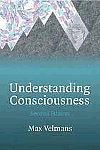 Max Velmans
Max Velmans
Understanding Consciousness
(Routledge 2009, 2nd edition)
Building on the widely-praised first 2000 edition, this new edition deepens Velman’s original analysis in a way that reflects some of the fundamental changes that have taken place over the last ten years. A unique survey of consciousness studies, along with an original analysis that combines scientific findings, philosophy and common sense. See Routledge | Amazon | Google
 Caspar Hare
Caspar Hare
On Myself, and Other, Less Important Subjects
(Princeton 2009)
A new take on solipsism, the view that people’s experiences give them grounds for believing that they have a special, distinguished place in the world—e.g., believing that only they exist. Few take solipsism seriously but Hare maintains that the version he argues for is defensible and uniquely capable of resolving some seemingly intractable philosophical problems. See Princeton | Amazon | Google
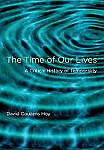 David Couzens Hoy
David Couzens Hoy
The Time of Our Lives: A Critical History of Temporality
(MIT 2009)
A confrontation with the passing of time and with human finitude runs through the history of philosophy as an ultimate concern. In this genealogy of the concept of temporality, Hoy examines the emergence in a post-Kantian continental philosophy of a focus on the lived experience of the “time of our lives” rather than on the time of the universe. See MIT | Amazon | Google
 Sven Bernecker
Sven Bernecker
Memory: A Philosophical Study
(Oxford 2009)
Memory is a neglected topic in contemporary philosophy. The basic question ‘What is memory?’ is usually set aside in favour of specific issues like the role of memory in justification or the connection of memory with time. This book addresses the basic question and aims to explain what qualifies a person’s mental state as a memory. See Oxford | Amazon | Google
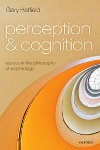 Gary Hatfield
Gary Hatfield
Perception and Cognition: Essays in the Philosophy of Psychology
(Oxford 2009)
How do we see? This question has perplexed philosophers and scientists for millennia. Hatfield’s essays on this ancient question address the psychological processes underlying spatial perception and perception of objects, psychological theories and metaphysical controversies about color perception and qualia, and the history and philosophy of theories of vision. See Oxford | Amazon | Google
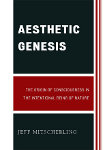 Jeff Mitscherling
Jeff Mitscherling
Aesthetic Genesis: The Origin of Consciousness in the Intentional Being of Nature
(Univ. Press of America 2009)
Mitscherling argues for a reversal of a central tenet of phenomenology, namely, that all consciousness is intentional. He suggests, as a new “Copernican hypothesis,” that intentionality gives rise to consciousness. This book describes not only the genesis of human cognition in sensation but also the genesis of sensation from intentional structures belonging to nature itself. See U Press America | Amazon | Google
 Lawrence Weiskrantz
Lawrence Weiskrantz
Blindsight: A Case Study Spanning 35 Years and New Developments
(Oxford 2009, 2nd edition)
Blindsight is an unusual condition where the sufferer can respond to visual stimuli while lacking any conscious feeling of having seen the stimuli. This new edition of the original 1986 publication brings our knowledge of this condition up to date. It retains the original text while adding substantial new chapters and colour illustrations. See Oxford | Amazon | Google
 Patrick Grim (ed.)
Patrick Grim (ed.)
Mind and Consciousness: 5 questions
(Automatic Press 2009)
Debates concerning the nature of mind and consciousness are active and ongoing. Grim interviews some of the best philosophers of mind, focusing on open questions, promising projects, and their own intellectual histories. The result is a rich glimpse of the contemporary debate through some of the people who have created it. See Automatic Press | Amazon | Google | K. Gödelek review
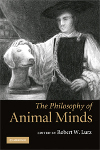 Robert W. Lurz (ed.)
Robert W. Lurz (ed.)
The Philosophy of Animal Minds
(Cambridge 2009)
The essays in this volume highlight the state of the philosophy of animal minds. Issues covered include whether animals think in a language or in iconic structures, possess concepts, are conscious, self-aware, metacognize, attribute states of mind to others, and have emotions, as well as the scientific standards for attributing mental states to animals. See Cambridge | Amazon | Google
 Robert D. Rupert
Robert D. Rupert
Cognitive Systems and the Extended Mind
(Oxford 2009)
This book focuses on the hypothesis of extended cognition, which says that cognitive processes are comprised of elements beyond the boundary of the organism. Rupert argues however that the only plausible way to demarcate cognition is “systems-based.” It then becomes clear how extant arguments in support of the extended view go wrong. See Oxford | Amazon | Google
 Daniel Stoljar
Daniel Stoljar
Physicalism
(Routledge 2009)
The thesis that everything is physical is one of the most controversial doctrines in philosophy. Its adherents argue that there is no more important creed while its opponents claim that its role is exaggerated. In this superb introduction, Stoljar focuses on three fundamental questions: the interpretation, truth and significance of physicalism. See Routledge | Google | Amazon
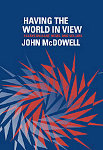 John McDowell
John McDowell
Having the World in View: Essays on Kant, Hegel, and Sellars
(Harvard 2009)
In this new book, McDowell builds on his much-discussed 1994 classic, Mind and World. He argues that the roots of some problems plaguing contemporary philosophy can be found in issues that were first discerned by Kant and that the best way to get a handle on them is to follow those issues as they are reshaped in the writings of Hegel and Sellars. See Harvard | Google
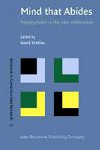 David Skrbina (ed.)
David Skrbina (ed.)
Mind that Abides: Panpsychism in the New Millennium
(John Benjamins 2009)
Panpsychism is the view that all things, living and nonliving, possess some mind-like quality. It contrasts sharply with the traditional notion of mind as the property of humans and some ‘higher animals.’ Overlooked for most of the twentieth century, panpsychism has a long history in both Western and Eastern thought and is now experiencing a renaissance of sorts. See John Benjamins | Google
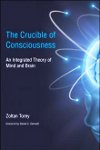 Zoltan Torey
Zoltan Torey
The Crucible of Consciousness
(MIT 2009, with a forward by Daniel Dennett)
Torey identifies the evolutionary breakthrough that rendered the brain accessible to itself and explains what separates our self-reflective consciousness from mere animal awareness. He argues that the neural technicalities of reflective awareness can be neither algorithmic nor spiritual—neither a computer nor a ghost in the machine. See MIT | Amazon | Google (1999 edition)
 Gordon G. Globus
Gordon G. Globus
The Transparent Becoming of World
(John Benjamins 2009)
A penetrating inquiry into the quotidian world we take for granted and the brain that silently hoists our bubbles of world-thrownness. After critiquing the traditional views of direct realism, indirect realism and idealism, the continual becoming of world is explained by integrating process dynamics with the burgeoning field of quantum neurophilosophy. See John Benjamins | Google
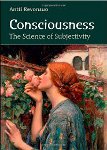 Antti Revonsuo
Antti Revonsuo
Consciousness: The Science of Subjectivity
(Psychology Press 2009)
This textbook on consciousness covers all the main approaches to the modern scientific study of consciousness and also gives the necessary historical, philosophical and conceptual background to the field. A readable and timely introduction to the science of consciousness for anyone interested in this compelling area. See Psychology Press | Google | Amazon
 Nudds & O’Callaghan (eds.)
Nudds & O’Callaghan (eds.)
Sounds and Perception: New Philosophical Essays
(Oxford 2009)
This volume is a collection of original essays on auditory perception and the nature of sounds, an emerging area of interest in the philosophy of mind and perception, and in the metaphysics of sensible qualities. It serves both as an introduction to the nature of auditory perception and as a resource for the main questions in this area. See Oxford | Amazon | Google | Introductory chapter (pdf)
 Uriah Kriegel
Uriah Kriegel
Subjective Consciousness: A Self-Representational Theory
(Oxford 2009)
Some mental events are conscious, others are not. What differentiates the two? Kriegel argues that consciousness arises when self-awareness and world-awareness are integrated in the right way. Conscious mental events differ from unconscious ones in that, whatever else they represent, they always also represent themselves, and in a specific way. See Oxford | Google | Amazon | J. Levine review
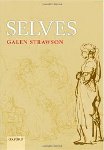 Galen Strawson
Galen Strawson
Selves
(Oxford 2009)
Strawson approaches the problem of the self by arguing that we should consider the phenomenology (experience) of the self before we attempt to tackle its metaphysics (its existence and nature). He concludes that selves, inner subjects of experience, do indeed exist, but they bear little resemblance to traditional conceptions of the self. See Oxford | Google | Amazon
 Jonathan Cohen
Jonathan Cohen
The Red and the Real
(Oxford 2009)
Cohen argues that colors are identical to functional roles involving perceptual effects on subjects. He first argues for the general relationalist view that colors are constituted in terms of relations between objects, subjects and viewing conditions. He then offers role functionalism as the most plausible form of color relationalism. See Oxford | Google | Amazon | Adam Pautz review
 Christopher S. Hill
Christopher S. Hill
Consciousness
(Cambridge 2009)
This book presents a comprehensive theory of consciousness, including phenomenal consciousness, where Hill argues that all awareness involves representations, even awareness of qualitative states like pain. Other topics include visual awareness, visual appearances, emotional qualia, and meta-cognitive processing. See Cambridge | Google | Amazon | Daniel Stoljar review
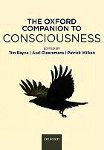 Bayne, Cleeremans, Wilken (eds.)
Bayne, Cleeremans, Wilken (eds.)
The Oxford Companion to Consciousness
(Oxford 2009)
With over 250 concise entries written by leaders in the field, this volume covers both fundamental topics and recent advances in the field. It is structured as an easy-to-use dictionary and extensively cross-referenced, with contributions from philosophy of mind to neuroscience, from experimental psychology to clinical findings. See Oxford | Google | Amazon
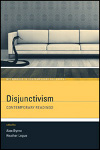 Alex Byrne & Heather Logue (eds.)
Alex Byrne & Heather Logue (eds.)
Disjunctivism: Contemporary Readings
(MIT 2009)
Disjunctivism has received both prominent support and much criticism in recent years. Here for the first time in one volume are classic texts that define and react it, including an excerpt from a book by J. M. Hinton, who first proposed an explicitly disjunctivist position, and essays stating a number of important objections. See MIT | Google | Amazon
 William Fish
William Fish
Perception, Hallucination and Illusion
(Oxford 2009)
The idea of a disjunctive theory of visual experiences first found expression in J. M. Hinton’s pioneering 1973 book Experiences. In the first monograph in this area since then, Fish develops a comprehensive disjunctive theory, incorporating detailed accounts of the three core kinds of visual experience—perception, hallucination, and illusion. See Oxford U Press | Google | Amazon
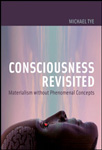 Michael Tye
Michael Tye
Consciousness Revisited: Materialism without Phenomenal Concepts
(MIT Press 2009)
To defend materialism in the face of consciousness, philosophers sometimes adopt the “phenomenal concept” strategy, which holds that we possess a range of special concepts for classifying the subjective aspects of our experiences. Michael Tye, a former proponent of this strategy, now argues that the strategy is mistaken. See MIT Press | Amazon | Google Books | Sam Coleman review
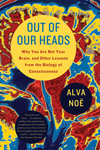 Alva Noë
Alva Noë
Out of Our Heads: Why You Are Not Your Brain, and Other Lessons from the Biology of Consciousness
(Hill and Wang 2009)
Alva Noë restates and reexamines the philosophical problem of consciousness and then proposes a startling solution: do away with the two-hundred-year-old paradigm that places consciousness within the confines of the brain. Noë suggests that rather than being something that happens inside of us, consciousness is something we do. See Hill and Wang (Macmillan) | Amazon | Google
 Thomas Metzinger
Thomas Metzinger
The Ego Tunnel
(Basic Books 2009)
Most people think about the self as an independent entity, something that we either have or are. Thomas Metzinger claims otherwise: no such thing as a self exists. The conscious self is the content of a model created by our brain—an internal image, but one we cannot experience as an image. See Basic Books | Amazon | Google | YouTube: Metzinger’s 15 minute explanation
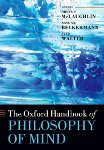 Brian McLaughlin et al. (eds.)
Brian McLaughlin et al. (eds.)
The Oxford Handbook of Philosophy of Mind
(Oxford 2009)
This volume consists of forty-five surveys of various topics. The first two sections cover the place of the mind in the world. The third section is on intentionality and content. The fourth examines various mental capacities like memory, imagination, and emotion. The fifth looks at epistemic issues and the volume concludes with a section on self, personhood, and agency. See Oxford | Google
 Gilbert Ryle
Gilbert Ryle
The Concept of Mind: 60th Anniversary Edition
(Routledge 2009)
First published in 1949, this is one of the classics of twentieth-century philosophy. Described by Ryle as a ‘sustained piece of analytical hatchet-work’ on Cartesian dualism, it is a radical attempt to jettison once and for all what Ryle called ‘the ghost in the machine.’ This sixtieth anniversary edition includes a substantial commentary by Julia Tanney. See Routledge | Google
 Richard Rorty
Richard Rorty
Philosophy and the Mirror of Nature: 30th Anniversary Edition
(Princeton 2009)
This 1979 book hit the philosophical world like a bombshell. Rorty argued that we have an unhelpful and unhealthy obsession with the notion of representation: comparing the mind to a mirror that reflects reality. This special edition contains a new introduction by Michael Williams, a new afterword by David Bromwich, and Rorty’s previously unpublished essay ‘The Philosopher as Expert.’ See Princeton | Google
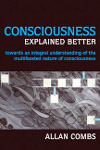 Allan Combs
Allan Combs
Consciousness Explained Better
(Paragon 2009)
The book offers the first thoroughgoing exploration of consciousness grounded in Ken Wilber’s understanding of its many aspects and developmental structures. Consciousness is explored from many points of view: its historical evolution, its growth in the individual, its mystical dimensions, and the meaning of enlightenment. See Paragon | Google | Amazon
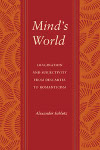 Alexander M. Schlutz
Alexander M. Schlutz
Mind’s World: Imagination and Subjectivity from Descartes to Romanticism
(U Washington Press 2009)
As the faculty that mediates between self and world, imagination is indispensable for modern models of subjectivity. In close readings of Descartes, Kant, Fichte, Hardenberg (Novalis) and Coleridge, and always returning to the ancient Greeks, Schlutz demonstrates that the unity of the subject cannot be conceptualized without recourse to imagination. See U Washington Press | Google
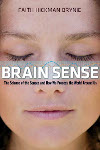 Faith Hickman Brynie
Faith Hickman Brynie
Brain Sense: The Science of the Senses and How We Process the World Around Us
(AMACOM 2009)
Why do you remember color images better than black and white? Why does that first cup of coffee taste better than anything you’ll have all day? The answer lies in the way our brains interpret and process sights, smells, sounds, tastes, and touches. Brynie explores the latest research on brain function and the senses and offers fascinating new insights about what makes us tick. See Amazon | Google
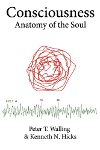 Peter T. Walling & Kenneth N. Hicks
Peter T. Walling & Kenneth N. Hicks
Consciousness: Anatomy of the Soul
(AuthorHouse 2009)
Walling and Hicks make a direct assault on the “Everest” of scientific mysteries, tracing the first glimmerings of consciousness in evolution and during emergence from anesthesia. Unlike many philosophical books, they have hard evidence to back up their ideas. This book is also an attempt to bridge the chasm between science and religion. See AuthorHouse | Amazon | Google

Embodied Minds in Action
(Oxford 2009)
A unified treatment of mental causation, action, and the mind-body problem. The authors claim that conscious, intentional minds are essentially embodied, and that essentially-embodied minds are self-organizing thermodynamic systems. The upshot is that we are essentially minded animals who help to create the natural world through our own agency. See Oxford | Amazon | Google

Understanding Consciousness
(Routledge 2009, 2nd edition)
Building on the widely-praised first 2000 edition, this new edition deepens Velman’s original analysis in a way that reflects some of the fundamental changes that have taken place over the last ten years. A unique survey of consciousness studies, along with an original analysis that combines scientific findings, philosophy and common sense. See Routledge | Amazon | Google

On Myself, and Other, Less Important Subjects
(Princeton 2009)
A new take on solipsism, the view that people’s experiences give them grounds for believing that they have a special, distinguished place in the world—e.g., believing that only they exist. Few take solipsism seriously but Hare maintains that the version he argues for is defensible and uniquely capable of resolving some seemingly intractable philosophical problems. See Princeton | Amazon | Google

The Time of Our Lives: A Critical History of Temporality
(MIT 2009)
A confrontation with the passing of time and with human finitude runs through the history of philosophy as an ultimate concern. In this genealogy of the concept of temporality, Hoy examines the emergence in a post-Kantian continental philosophy of a focus on the lived experience of the “time of our lives” rather than on the time of the universe. See MIT | Amazon | Google

Memory: A Philosophical Study
(Oxford 2009)
Memory is a neglected topic in contemporary philosophy. The basic question ‘What is memory?’ is usually set aside in favour of specific issues like the role of memory in justification or the connection of memory with time. This book addresses the basic question and aims to explain what qualifies a person’s mental state as a memory. See Oxford | Amazon | Google

Perception and Cognition: Essays in the Philosophy of Psychology
(Oxford 2009)
How do we see? This question has perplexed philosophers and scientists for millennia. Hatfield’s essays on this ancient question address the psychological processes underlying spatial perception and perception of objects, psychological theories and metaphysical controversies about color perception and qualia, and the history and philosophy of theories of vision. See Oxford | Amazon | Google

Aesthetic Genesis: The Origin of Consciousness in the Intentional Being of Nature
(Univ. Press of America 2009)
Mitscherling argues for a reversal of a central tenet of phenomenology, namely, that all consciousness is intentional. He suggests, as a new “Copernican hypothesis,” that intentionality gives rise to consciousness. This book describes not only the genesis of human cognition in sensation but also the genesis of sensation from intentional structures belonging to nature itself. See U Press America | Amazon | Google

Blindsight: A Case Study Spanning 35 Years and New Developments
(Oxford 2009, 2nd edition)
Blindsight is an unusual condition where the sufferer can respond to visual stimuli while lacking any conscious feeling of having seen the stimuli. This new edition of the original 1986 publication brings our knowledge of this condition up to date. It retains the original text while adding substantial new chapters and colour illustrations. See Oxford | Amazon | Google

Mind and Consciousness: 5 questions
(Automatic Press 2009)
Debates concerning the nature of mind and consciousness are active and ongoing. Grim interviews some of the best philosophers of mind, focusing on open questions, promising projects, and their own intellectual histories. The result is a rich glimpse of the contemporary debate through some of the people who have created it. See Automatic Press | Amazon | Google | K. Gödelek review

The Philosophy of Animal Minds
(Cambridge 2009)

The essays in this volume highlight the state of the philosophy of animal minds. Issues covered include whether animals think in a language or in iconic structures, possess concepts, are conscious, self-aware, metacognize, attribute states of mind to others, and have emotions, as well as the scientific standards for attributing mental states to animals. See Cambridge | Amazon | Google

Cognitive Systems and the Extended Mind
(Oxford 2009)

This book focuses on the hypothesis of extended cognition, which says that cognitive processes are comprised of elements beyond the boundary of the organism. Rupert argues however that the only plausible way to demarcate cognition is “systems-based.” It then becomes clear how extant arguments in support of the extended view go wrong. See Oxford | Amazon | Google

Physicalism
(Routledge 2009)

The thesis that everything is physical is one of the most controversial doctrines in philosophy. Its adherents argue that there is no more important creed while its opponents claim that its role is exaggerated. In this superb introduction, Stoljar focuses on three fundamental questions: the interpretation, truth and significance of physicalism. See Routledge | Google | Amazon

Having the World in View: Essays on Kant, Hegel, and Sellars
(Harvard 2009)
In this new book, McDowell builds on his much-discussed 1994 classic, Mind and World. He argues that the roots of some problems plaguing contemporary philosophy can be found in issues that were first discerned by Kant and that the best way to get a handle on them is to follow those issues as they are reshaped in the writings of Hegel and Sellars. See Harvard | Google

Mind that Abides: Panpsychism in the New Millennium
(John Benjamins 2009)
Panpsychism is the view that all things, living and nonliving, possess some mind-like quality. It contrasts sharply with the traditional notion of mind as the property of humans and some ‘higher animals.’ Overlooked for most of the twentieth century, panpsychism has a long history in both Western and Eastern thought and is now experiencing a renaissance of sorts. See John Benjamins | Google

The Crucible of Consciousness
(MIT 2009, with a forward by Daniel Dennett)
Torey identifies the evolutionary breakthrough that rendered the brain accessible to itself and explains what separates our self-reflective consciousness from mere animal awareness. He argues that the neural technicalities of reflective awareness can be neither algorithmic nor spiritual—neither a computer nor a ghost in the machine. See MIT | Amazon | Google (1999 edition)

The Transparent Becoming of World
(John Benjamins 2009)
A penetrating inquiry into the quotidian world we take for granted and the brain that silently hoists our bubbles of world-thrownness. After critiquing the traditional views of direct realism, indirect realism and idealism, the continual becoming of world is explained by integrating process dynamics with the burgeoning field of quantum neurophilosophy. See John Benjamins | Google

Consciousness: The Science of Subjectivity
(Psychology Press 2009)
This textbook on consciousness covers all the main approaches to the modern scientific study of consciousness and also gives the necessary historical, philosophical and conceptual background to the field. A readable and timely introduction to the science of consciousness for anyone interested in this compelling area. See Psychology Press | Google | Amazon

Sounds and Perception: New Philosophical Essays
(Oxford 2009)
This volume is a collection of original essays on auditory perception and the nature of sounds, an emerging area of interest in the philosophy of mind and perception, and in the metaphysics of sensible qualities. It serves both as an introduction to the nature of auditory perception and as a resource for the main questions in this area. See Oxford | Amazon | Google | Introductory chapter (pdf)

Subjective Consciousness: A Self-Representational Theory
(Oxford 2009)
Some mental events are conscious, others are not. What differentiates the two? Kriegel argues that consciousness arises when self-awareness and world-awareness are integrated in the right way. Conscious mental events differ from unconscious ones in that, whatever else they represent, they always also represent themselves, and in a specific way. See Oxford | Google | Amazon | J. Levine review

Selves
(Oxford 2009)
Strawson approaches the problem of the self by arguing that we should consider the phenomenology (experience) of the self before we attempt to tackle its metaphysics (its existence and nature). He concludes that selves, inner subjects of experience, do indeed exist, but they bear little resemblance to traditional conceptions of the self. See Oxford | Google | Amazon

The Red and the Real
(Oxford 2009)

Cohen argues that colors are identical to functional roles involving perceptual effects on subjects. He first argues for the general relationalist view that colors are constituted in terms of relations between objects, subjects and viewing conditions. He then offers role functionalism as the most plausible form of color relationalism. See Oxford | Google | Amazon | Adam Pautz review

Consciousness
(Cambridge 2009)
This book presents a comprehensive theory of consciousness, including phenomenal consciousness, where Hill argues that all awareness involves representations, even awareness of qualitative states like pain. Other topics include visual awareness, visual appearances, emotional qualia, and meta-cognitive processing. See Cambridge | Google | Amazon | Daniel Stoljar review

The Oxford Companion to Consciousness
(Oxford 2009)
With over 250 concise entries written by leaders in the field, this volume covers both fundamental topics and recent advances in the field. It is structured as an easy-to-use dictionary and extensively cross-referenced, with contributions from philosophy of mind to neuroscience, from experimental psychology to clinical findings. See Oxford | Google | Amazon

Disjunctivism: Contemporary Readings
(MIT 2009)
Disjunctivism has received both prominent support and much criticism in recent years. Here for the first time in one volume are classic texts that define and react it, including an excerpt from a book by J. M. Hinton, who first proposed an explicitly disjunctivist position, and essays stating a number of important objections. See MIT | Google | Amazon

Perception, Hallucination and Illusion
(Oxford 2009)
The idea of a disjunctive theory of visual experiences first found expression in J. M. Hinton’s pioneering 1973 book Experiences. In the first monograph in this area since then, Fish develops a comprehensive disjunctive theory, incorporating detailed accounts of the three core kinds of visual experience—perception, hallucination, and illusion. See Oxford U Press | Google | Amazon

Consciousness Revisited: Materialism without Phenomenal Concepts
(MIT Press 2009)

To defend materialism in the face of consciousness, philosophers sometimes adopt the “phenomenal concept” strategy, which holds that we possess a range of special concepts for classifying the subjective aspects of our experiences. Michael Tye, a former proponent of this strategy, now argues that the strategy is mistaken. See MIT Press | Amazon | Google Books | Sam Coleman review

Out of Our Heads: Why You Are Not Your Brain, and Other Lessons from the Biology of Consciousness
(Hill and Wang 2009)
Alva Noë restates and reexamines the philosophical problem of consciousness and then proposes a startling solution: do away with the two-hundred-year-old paradigm that places consciousness within the confines of the brain. Noë suggests that rather than being something that happens inside of us, consciousness is something we do. See Hill and Wang (Macmillan) | Amazon | Google

The Ego Tunnel
(Basic Books 2009)

Most people think about the self as an independent entity, something that we either have or are. Thomas Metzinger claims otherwise: no such thing as a self exists. The conscious self is the content of a model created by our brain—an internal image, but one we cannot experience as an image. See Basic Books | Amazon | Google | YouTube: Metzinger’s 15 minute explanation

The Oxford Handbook of Philosophy of Mind
(Oxford 2009)
This volume consists of forty-five surveys of various topics. The first two sections cover the place of the mind in the world. The third section is on intentionality and content. The fourth examines various mental capacities like memory, imagination, and emotion. The fifth looks at epistemic issues and the volume concludes with a section on self, personhood, and agency. See Oxford | Google

The Concept of Mind: 60th Anniversary Edition
(Routledge 2009)

First published in 1949, this is one of the classics of twentieth-century philosophy. Described by Ryle as a ‘sustained piece of analytical hatchet-work’ on Cartesian dualism, it is a radical attempt to jettison once and for all what Ryle called ‘the ghost in the machine.’ This sixtieth anniversary edition includes a substantial commentary by Julia Tanney. See Routledge | Google

Philosophy and the Mirror of Nature: 30th Anniversary Edition
(Princeton 2009)

This 1979 book hit the philosophical world like a bombshell. Rorty argued that we have an unhelpful and unhealthy obsession with the notion of representation: comparing the mind to a mirror that reflects reality. This special edition contains a new introduction by Michael Williams, a new afterword by David Bromwich, and Rorty’s previously unpublished essay ‘The Philosopher as Expert.’ See Princeton | Google

Consciousness Explained Better
(Paragon 2009)

The book offers the first thoroughgoing exploration of consciousness grounded in Ken Wilber’s understanding of its many aspects and developmental structures. Consciousness is explored from many points of view: its historical evolution, its growth in the individual, its mystical dimensions, and the meaning of enlightenment. See Paragon | Google | Amazon

Mind’s World: Imagination and Subjectivity from Descartes to Romanticism
(U Washington Press 2009)
As the faculty that mediates between self and world, imagination is indispensable for modern models of subjectivity. In close readings of Descartes, Kant, Fichte, Hardenberg (Novalis) and Coleridge, and always returning to the ancient Greeks, Schlutz demonstrates that the unity of the subject cannot be conceptualized without recourse to imagination. See U Washington Press | Google

Brain Sense: The Science of the Senses and How We Process the World Around Us
(AMACOM 2009)
Why do you remember color images better than black and white? Why does that first cup of coffee taste better than anything you’ll have all day? The answer lies in the way our brains interpret and process sights, smells, sounds, tastes, and touches. Brynie explores the latest research on brain function and the senses and offers fascinating new insights about what makes us tick. See Amazon | Google

Consciousness: Anatomy of the Soul
(AuthorHouse 2009)
Walling and Hicks make a direct assault on the “Everest” of scientific mysteries, tracing the first glimmerings of consciousness in evolution and during emergence from anesthesia. Unlike many philosophical books, they have hard evidence to back up their ideas. This book is also an attempt to bridge the chasm between science and religion. See AuthorHouse | Amazon | Google
Menu
 What’s a logical paradox?
What’s a logical paradox? Achilles & the tortoise
Achilles & the tortoise The surprise exam
The surprise exam Newcomb’s problem
Newcomb’s problem Newcomb’s problem (sassy version)
Newcomb’s problem (sassy version) Seeing and being
Seeing and being Logic test!
Logic test! Philosophers say the strangest things
Philosophers say the strangest things Favourite puzzles
Favourite puzzles Books on consciousness
Books on consciousness Philosophy videos
Philosophy videos Phinteresting
Phinteresting Philosopher biographies
Philosopher biographies Philosopher birthdays
Philosopher birthdays Draft
Draftbarang 2009-2024  wayback machine
wayback machine
 wayback machine
wayback machine